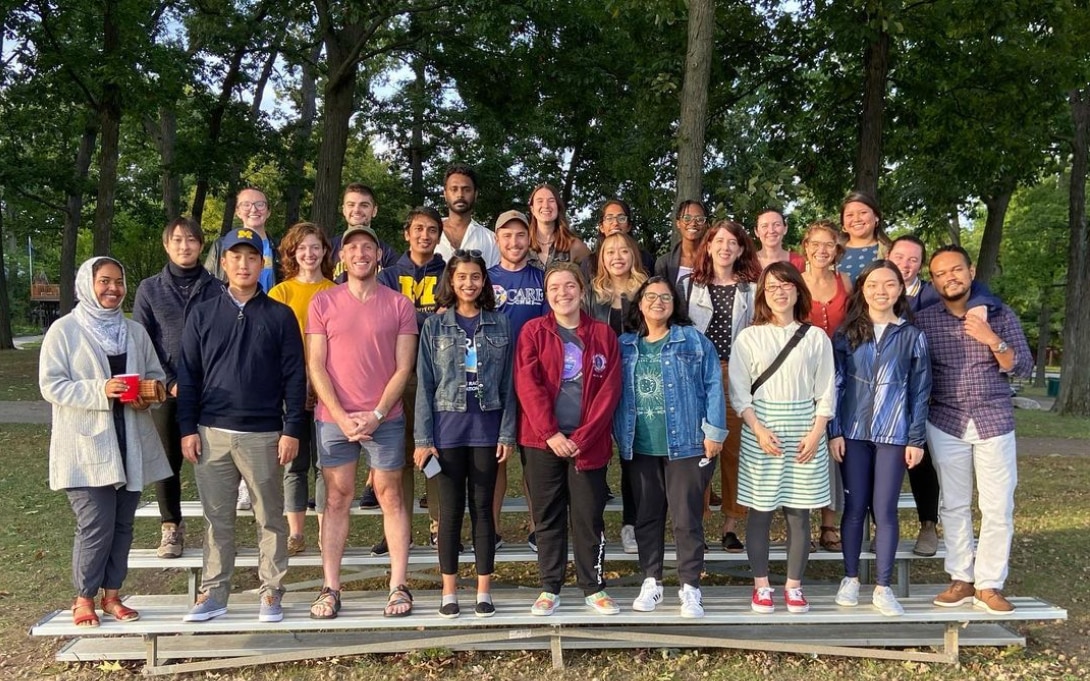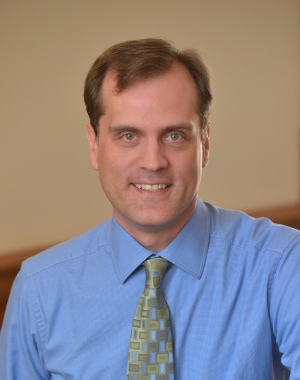
By Daniel Rivkin
Akiho Nagano (MPP '23) and Mayu Ueno (MPP '24) were speaking in a corridor at Weill Hall, sharing thoughts about past jobs, future jobs, and their families. Roaming the halls, you can hear similar conversations, in their case in Japanese, and also in English, Bahasa, French, Hindi, Mandarin, Spanish, or Urdu, among others. It's an audible reflection of the importance international students have in the Ford School's culture.
Currently, the school is the academic home to 58 international students from 15 countries. They come from every continent and have a multitude of interests. Many of them say they found out about the school from the U-M's vast alumni network, amplified through word of mouth. In the case of the Japanese students, they come from a longstanding informal relationship the Ford School has with a variety of Japanese ministries.
"International students enrich the school and its network. Their presence makes it more important to de-center U.S. perspectives in the classroom. We may be making assumptions and be locked into narrow U.S.-based policy debates, so we benefit from new approaches," says John Ciorciari, associate dean for research and policy engagement and director of the International Policy Center and Weiser Diplomacy Center.
He notes that many topics are common: policing, climate change, inequity in housing, or inequality in the workplace. "These are relevant issues almost everywhere, but they may be dealt with in different ways," he says.
Global Fordies, a student organization made up of foreign and domestic students, serves and advocates for the international student community. Co-chair Yi-Chia Hwang (MPP '23) says that through her academic focus on gender inequality, she has been able to compare her native Taiwan to the U.S. and to other East Asian countries. "Naturally as an international student, I do the comparisons about which approach is better and more effective. I also learn to apply different perspectives in different contexts. And I think this is applicable to all of my learning here."
Riya Cherian (MPP '24) is from India. She appreciated the diversity of experiences she saw in professor Megan Stewart's Politics of Public Policy class, looking at democracy beyond the conventional narratives and also showing sensitivity to cultural differences. "It gives us a framework where we can have essential, sometimes difficult, conversations," she says.
For some students, understanding the approach to academics is only one of the adjustments they may have to make. Those for whom English is not their first language may encounter terms they haven't seen before, like "cognate" or "backpacking" or even "office hours".
"Office hours don't exist in Japan," reports Nagano.
Global Fordies group is tackling the whole range of topics. Kaniz Farwa Haider (MPP '23), from Pakistan, another leader of the group, describes the work. "We are having conversations with other students about course design, written exams, and other issues, and we have been taking those to school leaders. Having that presence, making it known, is important for us so we can make progress and make it better for the international Fordies of the future."
Those messages are being put into action.
"It's an instructional challenge to make sure we're on the same page. Even when giving math or stats problem sets, we need to be extra sure that the instructions are clear. And that can benefit native English speakers as well," says Jonathan Hanson, lecturer in statistics for public policy.
Hwang says the students are creating a living document that will be a repository for new students, including a glossary, some cultural tips, and advice on life in Ann Arbor. For many students, class participation is also a new phenomenon. She wants future students to know that it is natural to feel uncomfortable at first. "Now in my second year, I am a more confident public speaker, for sure," she adds.
Ciorciari sees the evolution towards a greater globalization of the curriculum and the community.
"If we have a conversation about values and ethics, it needs to be accessible to people from a variety of nationalities, faiths, and linguistic backgrounds. Opening that conversation up has positive effects for all students. It trains us how to communicate clearly and respectfully about complex and sometimes vexing issues to diverse global audiences."
"The line goes through every aspect of the Ford School. We need to be sensitive to our pedagogy, culture, language, and assumptions. As we address each of these challenges, we improve the environment for them, and the experience for international and domestic students makes it better for all," Hanson concludes.
The effect of the exposure to a range of nationalities at the Ford School endures. Charmaine Chua (MPP/MSW '20), now working in a Singapore social service sector agency, taps into the experience. "For those seeking to achieve global impact, collegial connections with international students may make all the difference at a time when that is needed. Even for those seeking to work locally, there is no truly local issue in our world today. Local policy itself is made in the shadow of global policy and developments."
Even for those seeking to work locally, there is no truly local issue in our world today. Local policy itself is made in the shadow of global policy and developments."
Charimaine Chua (MPP/MSW '20)
Even as they adjust, give input, and help the community diversify, some international students have limits to what they will change. Haider says, "There's one thing I cannot make myself do: call my professors by their first names. They worked hard for their degrees and deserve to be called 'professor'."
More in State & Hill
Below, find the full, formatted spring 2023 edition of State & Hill. Click here to return to the spring 2023 S&H homepage.
